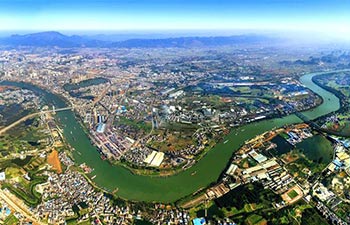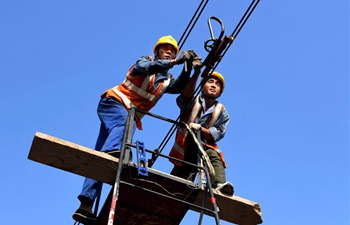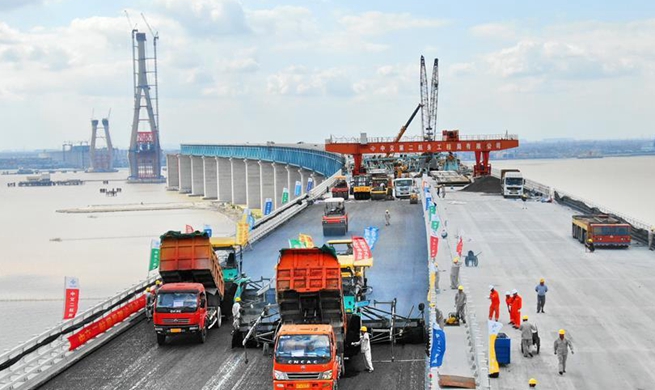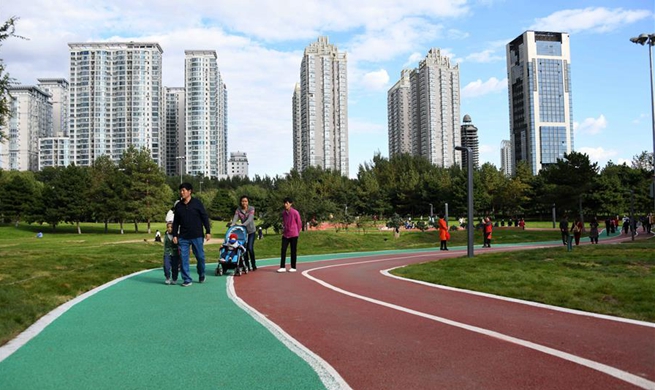UNITED NATIONS, Sept. 25 (Xinhua) -- UN Secretary-General Antonio Guterres on Tuesday asked world leaders to keep the perils of new technologies at bay while upholding their promise.
With new technologies, there is great promise, but also risks and serious dangers, he told the leaders attending this year's high-level General Debate of the General Assembly.
"The impacts of new technologies on warfare are a direct threat to our common responsibility to guarantee peace and security," said Guterres.
The weaponization of artificial intelligence is a growing concern. The prospect of weapons that can select and attack a target on their own raises multiple alarms, and could trigger new arms races, he warned. "Let's call it as it is. The prospect of machines with the discretion and power to take human life is morally repugnant."
"Heaven forbid, any new war could very well include a massive cyber-attack not only targeting military capacities, but also critical civilian infrastructure," he said.
At the same time, technology is being misused by terrorists and for sexual exploitation and abuse, he noted.
Organized criminal networks lurk on the dark web, profiting from encryption and near-anonymous cryptocurrency payments to traffic in people and illegal goods. Some reports estimate that cybercrime is now putting 1.5 trillion U.S. dollars in the pockets of cybercriminals every year, said Guterres.
Malicious acts in cyberspace, such as disinformation campaigns, are polarizing communities and diminishing trust among states. And more and more people are getting their information from news or social media feeds that echo their views, reinforce tribalism and assure people that they are right and the other side is wrong, he said.
The digital revolution is also being used to discriminate against women and reinforce the male-dominated culture. There is a deep gender gap in access to digital technologies, widening the digital divide, he said.
Technological advances may disrupt labor markets, bringing about socio-economic impacts, as traditional jobs change or disappear, even as the number of young job-seekers continues to grow, he observed.
Re-training will be needed at previously unimaginable scales. Education must adapt -- from the earliest grades. And the very nature of work will change. Governments may have to consider stronger social safety nets and eventually universal basic income.
With technology outracing institutions, cooperation between countries and among stakeholders will be crucial, including UN member states, the private sector, research centers, civil society and academia, said the UN chief. "There are many mutually beneficial solutions for digital challenges. We need urgently to find the way to apply them."
More work on these issues, aimed at building trust between and within nations, will be needed to ensure the responsible use of new technologies, he said. "I urge you to use the United Nations as a platform to draw global attention to these crucial matters and to nurture a digital future that is safe and beneficial for all."
















